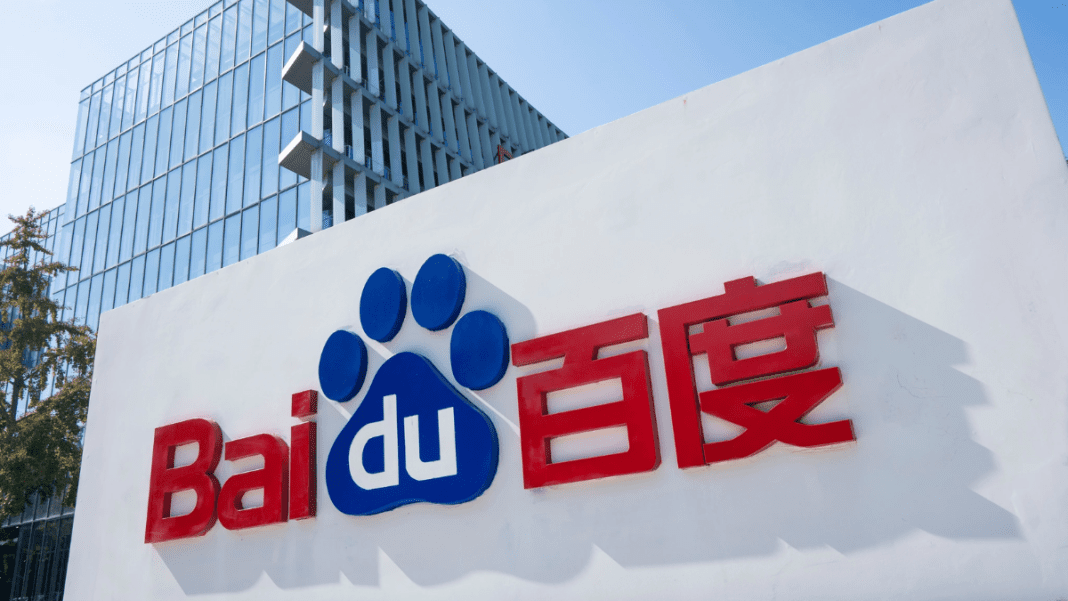China’s leading technology company Baidu, led by CEO Robin Li, has introduced two new artificial intelligence (AI) chips and a line of supercomputing products designed to enhance China’s computing power. The announcement came at the Baidu World technology conference, where the company presented its latest advances in AI hardware.
The launch comes as U.S.–China tensions continue to affect access to high-end technology. Restrictions on exporting advanced U.S. AI chips have pushed Chinese companies to develop domestic alternatives. Baidu said its new products aim to give local firms access to powerful and cost-effective computing that is fully developed within China.
Baidu’s new processors serve different purposes in AI development. The M100 focuses on inference, which allows AI systems to make predictions or answer user requests after being trained. It is set for release in early 2026. The M300, capable of both training and inference, will arrive in early 2027.
Training involves feeding large datasets into AI systems so they can recognize patterns and learn. Inference then applies this learning to real-world tasks. By producing chips that can handle both, Baidu continues its effort to strengthen domestic computing capabilities. The company has been developing its own semiconductors since 2011, marking a steady path toward technological independence.
Elon Musk accused of forcing xAI staff to give facial data for ‘flirty’ AI girlfriend chatbot
Supercomputing Products Expand Baidu’s AI Capabilities
In addition to new chips, Baidu announced two supernode systems designed to link hundreds of chips together for large-scale AI workloads. These supernodes help overcome performance limits that a single chip might face by combining their computing strength.
The first system, called Tianchi 256, will use 256 P800 chips and will be available in the first half of next year. A larger version, Tianchi 512, using 512 P800 chips, will launch in the second half of the year.
These systems aim to support major AI applications, from model training to cloud computing. Baidu said the Tianchi series is built to deliver reliable, high-speed networking performance that can meet the rising demand for AI processing in China.
Other Chinese companies are following similar paths. Huawei, under the leadership of Ken Hu, recently introduced CloudMatrix 384, which connects 384 Ascend 910C chips. Experts have noted that Huawei’s setup could rival Nvidia’s GB200 NVL72, one of the most advanced systems in the world created under Jensen Huang. Huawei also plans to release even more powerful supernode products in the coming years.
Bernie Sanders blasts Jeff Bezos over Amazon’s AI automation plan that could erase 500,000 U.S. jobs
Baidu’s announcement reflects the growing race among China’s technology leaders to build homegrown AI computing systems that can match global performance standards while avoiding foreign supply constraints.
Ernie Model Adds Image and Video Capabilities
Baidu also unveiled an updated version of its Ernie large language model (LLM). The company said this version shows major improvements not only in text understanding and generation, but also in image and video analysis. This allows Ernie to process multiple types of content at once, a feature known as multimodal AI.
Ernie serves as the foundation of Baidu’s Artificial Intelligence platform, similar to other global models that power chatbots and intelligent assistants. By strengthening both its software and hardware, Baidu is aligning its Artificial Intelligence ecosystem from the chip level to the model level.
With the introduction of the M100 and M300 processors, the Tianchi supernodes, and the enhanced Ernie model, Baidu has taken one of its most significant steps in advancing China’s AI infrastructure. The company’s progress under Robin Li’s leadership highlights China’s determination to develop independent, high-performance AI technology amid ongoing global competition.
